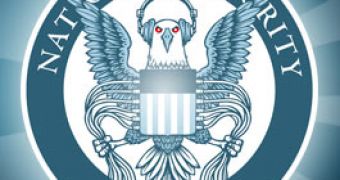Newly published documents on the NSA's policies show that not only is the agency spying on Americans, by mistake or not, but it is also lying about it systematically and hiding it from Congress.
The Washington Post has released more documents from the ones leaked by Edward Snowden, which show that an internal NSA audit discovered 2,776 incidents, i.e. cases where laws and regulations were not followed.
Many of those incidents were unintentional errors, but some were due to agents not following procedure.
The software and systems the NSA used were the culprit in a large number of cases, for example, the computers failed to recognize when a targeted phone entered the US and continued the surveillance.
Other incidents were caused by human errors such as erroneous or broad queries or even simple typos.
In one of the more serious incidents, which wasn't reported to anyone outside the NSA, a programing error mistook the 202 US area code for Washington, D.C. for the +20 international dialing code of Egypt leading to a "large number" of local calls being intercepted.
Even more worrying though is one case where a new surveillance system used by the NSA was deemed unconstitutional by the secret FISA Court who ordered the agency to modify the system to be in compliance with the law or stop using it altogether.
But NSA had been using that method for months before even bothering to tell the court about it. The system worked by redirecting vast amounts of internet traffic that passed through the US into storage servers where it could be processed and the relevant information extracted.
This, quite obviously, resulted in a large number of emails and data on Americans being captured as well and the NSA admitted that it could not prevent this data from being intercepted or filter it beforehand.
It's hard to get an estimate on how many Americans were affected by the incidents in the report, but what is clear is that these mistakes are quite common.
The report only covers one year, from May 2012 to May 2013, and only the NSA’s Fort Meade headquarters and other outposts in the Washington area. If all the various regional outposts and collection centers were included, the number of incidents would be significantly greater, sources from the US government say.
Perhaps graver than the incidents themselves is the fact that the NSA doesn't feel the need to disclose this to the agencies that should oversee it and, in fact, actively discourages personnel from providing too much data in the incident reports.

 14 DAY TRIAL //
14 DAY TRIAL //